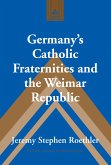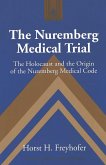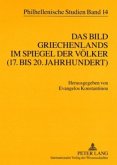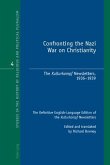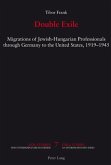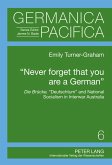Under Hitler, Germany's state-linked provincial churches functioned as seedbeds of nationalism. A smaller and independent church form - the "free church" or denomination - offered greater promise of nonconformity. Linked by pacifist traditions, German Mennonites, Seventh-day Adventists, and Quakers promoted a range of liberal principles: empowerment of the individual conscience, respect for confessional diversity, and separation of church and state. Nonetheless, two of these denominations used these same principles to defend and even embrace the Nazi regime. This book examines what makes Christian communities - when meeting the harsh challenges of modernity - viable entities of faith or hollow forms.
Bitte wählen Sie Ihr Anliegen aus.
Rechnungen
Retourenschein anfordern
Bestellstatus
Storno


